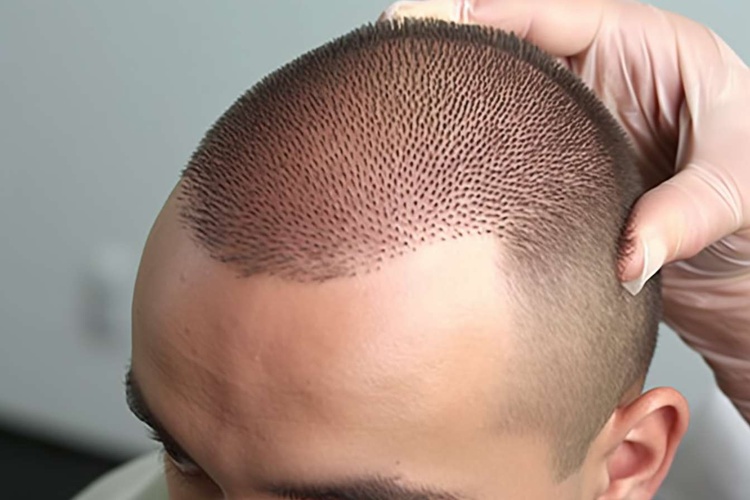Scalp Psoriasis Explained: Symptoms, Causes, and Treatment Options
Scalp psoriasis is a common skin condition that affects millions of people worldwide. It's characterized by red, itchy, and scaly patches on the scalp that can be both uncomfortable and embarrassing. While there's no cure for scalp psoriasis, understanding its symptoms, causes, and treatment options can help manage the condition effectively. This article delves into the various aspects of scalp psoriasis, providing valuable insights for those affected by this persistent skin disorder.

What Are the Common Symptoms of Scalp Psoriasis?
Scalp psoriasis manifests in several ways, often varying in severity from person to person. The most common symptoms include:
-
Red, raised, inflamed areas on the scalp
-
Silvery-white scales that may shed and fall onto clothing
-
Intense itching, which can lead to scratching and further irritation
-
Dry scalp that may crack and bleed
-
Temporary hair loss in severe cases due to excessive scratching or inflammation
These symptoms can extend beyond the hairline, affecting the forehead, back of the neck, and behind the ears. In some cases, scalp psoriasis can be mild and barely noticeable, while in others, it can cover the entire scalp and be highly visible.
What Triggers Scalp Psoriasis Flare-Ups?
Understanding the triggers of scalp psoriasis flare-ups is crucial for managing the condition effectively. While the exact cause of psoriasis is not fully understood, several factors are known to trigger or exacerbate symptoms:
-
Stress: Emotional stress is a significant trigger for many people with scalp psoriasis.
-
Infections: Strep throat and other infections can trigger flare-ups.
-
Skin injuries: Cuts, scrapes, or sunburns can lead to new psoriasis patches.
-
Cold, dry weather: Winter conditions can worsen symptoms.
-
Certain medications: Beta-blockers, lithium, and antimalarial drugs may trigger outbreaks.
-
Alcohol consumption: Excessive drinking can increase inflammation in the body.
-
Smoking: Tobacco use is linked to increased risk and severity of psoriasis.
Identifying personal triggers can help individuals avoid flare-ups and better manage their condition.
What Are the Most Effective Treatment Options for Scalp Psoriasis?
Treating scalp psoriasis often involves a combination of approaches, tailored to the severity of the condition and individual response to treatment. Some of the most effective options include:
-
Topical treatments: Corticosteroid creams, ointments, or shampoos are often the first line of defense. These help reduce inflammation and slow skin cell growth.
-
Salicylic acid: This ingredient helps soften and remove scales, making other treatments more effective.
-
Coal tar: Available in shampoos and ointments, coal tar can slow skin cell growth and reduce inflammation and itching.
-
Vitamin D analogues: Topical treatments containing synthetic vitamin D can help slow skin cell growth.
-
Systemic medications: For severe cases, oral or injectable medications like methotrexate or biologics may be prescribed.
-
Light therapy: Controlled exposure to UV light can help slow skin cell turnover and reduce inflammation.
-
Medicated shampoos: Special shampoos containing ingredients like ketoconazole or zinc pyrithione can help manage symptoms.
It’s important to work closely with a dermatologist to find the most effective treatment plan, as what works for one person may not work for another.
How Can You Manage Scalp Psoriasis Flare-Ups at Home?
While medical treatments are essential, there are several steps you can take at home to manage scalp psoriasis flare-ups:
-
Keep your scalp moisturized: Use gentle, fragrance-free moisturizers to prevent dryness and itching.
-
Avoid scratching: This can worsen inflammation and lead to infection.
-
Use a humidifier: Adding moisture to the air can help prevent dry skin.
-
Manage stress: Practice relaxation techniques like meditation or yoga to reduce stress-related flare-ups.
-
Gentle hair care: Use lukewarm water and avoid harsh hair products that can irritate the scalp.
-
Dietary changes: Some people find relief by avoiding certain foods, such as those high in inflammatory omega-6 fatty acids.
-
Gentle scalp massage: This can help loosen scales and improve blood circulation to the scalp.
Remember, consistency is key when managing scalp psoriasis at home. Stick to your routine even when symptoms improve to help prevent future flare-ups.
What Daily Care Routines Are Recommended for Sensitive Scalps?
For those with scalp psoriasis, a gentle daily care routine is essential to manage symptoms and maintain scalp health:
-
Use lukewarm water: Hot water can irritate the scalp and worsen symptoms.
-
Choose gentle shampoos: Opt for fragrance-free, hypoallergenic options designed for sensitive scalps.
-
Limit washing frequency: Over-washing can strip the scalp of natural oils, leading to more irritation.
-
Pat dry gently: Avoid rubbing the scalp with a towel, which can cause irritation.
-
Apply medications as directed: Follow your healthcare provider’s instructions for applying topical treatments.
-
Brush hair gently: Use a soft-bristled brush to avoid irritating the scalp.
-
Avoid tight hairstyles: Pulling hair tightly can irritate the scalp and worsen symptoms.
-
Protect your scalp from the sun: Use a hat or sunscreen designed for the scalp when outdoors.
By incorporating these gentle care practices into your daily routine, you can help manage scalp psoriasis symptoms and promote overall scalp health.
Scalp psoriasis can be a challenging condition to live with, but with the right knowledge and treatment approach, it’s possible to manage symptoms effectively. By understanding the common symptoms, triggers, and treatment options, individuals can work with their healthcare providers to develop a comprehensive management plan. Remember, what works best may vary from person to person, so patience and persistence are key in finding the most effective combination of treatments and lifestyle changes for your unique situation.
This article is for informational purposes only and should not be considered medical advice. Please consult a qualified healthcare professional for personalized guidance and treatment.




